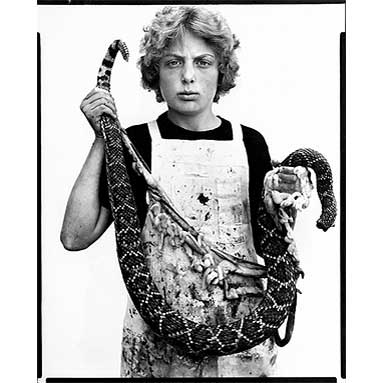Sainted William Burroughs, the Junkie Sage of Lawrence, wrote that there would be "no more Stalins, no more Hitlers."
We have a new type of rule now. Not one-man rule, or rule of aristocracy or plutocracy, but of small groups elevated to positions of absolute power by random pressures and subject to political and economic factors that leave little room for decision.They are representatives of abstract forces who have reached power through surrender of self. The iron-willed dictator is a thing of past.
And indeed, the Great Man Theory of History has been steadily losing credibility in the West for many a year. It still gets some play in the developing world, of course—one of the many cultural divides that make diplomacy in the Arab region so tricksy. Khadafy, Khomeini, Saddam Hussein—all presented themselves as Great Men, will all the attendant iconography and state-sponsored hagiography.
And Saddam Hussein, at least, seems to have believed his own hype. How else to explain the way that, dragged from his hidey-hole like a stewbum rousted from Penn Station, he announced in broken English, "I am the President of Iraq—I want to negotiate"? It'd be funny, if it weren't faintly pathetic.
A headline at a progressive news feed solemnly warns "Arabs Share Little of World Joy Over Saddam's Capture." Ah, yes. So sad, no? I am sorry, but try as I might I cannot bring myself to feel bad for those whose hearts are broken by this turn of events. As with Paul Robeson, Doris Lessing, and so many other old lefties whom I love and by whom I am exasperated, I cannot muster sympathy for those whose heroes seem great of stature only because they stand atop a mountain of bones.
This is not just about backing the wrong horse, friends—this is about shaking the Devil's hand, and about what you do afterwards: you can spend the rest of your life trying to wash the stink off, or you can claim, loudly and unconvincingly, that it smells like roses.
Will this capture make a blind bit of difference in the democratization of the Middle East—in our last, best chance to vanquish Islamofascist terrorism, by making it irrelevant? Hard to say. The key is to remain focussed on the process, not on any arbitrary set of progress-markers.
Watched with mounting irritation last night the conclusion of HBO's film of Tony Kushner's play Angels In America. There were a handful of good lines amidst six hours of grad-school blather, but what galled me about the whole exercise was its epic narcissism: its insistence on conflating the end of one way of life with the End Of The World, and Kushner's own politicization with the Birth Of Politics, full stop. The film's final moments are flesh-creepingly smug as the protagonist addresses the audience, informing us, with desperate self-importance, that "now, the Great Work begins."
Well, no. The Great Work began long before Tony Kushner deigned to give it his imprimatur: it begins anew with each new day since the morning of the world, and will begin afresh long after all we now living are dust. That's the essence of a process: always starting, never ending.
What can we hope for, in Iraq, in the Middle East, in all our broken, freak-ridden, cruel, crazy, beautiful world? The great work begins now.
Just like always.

